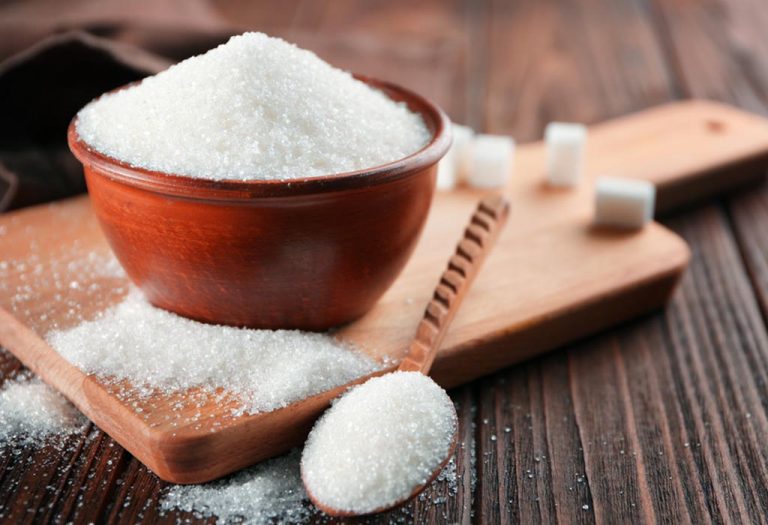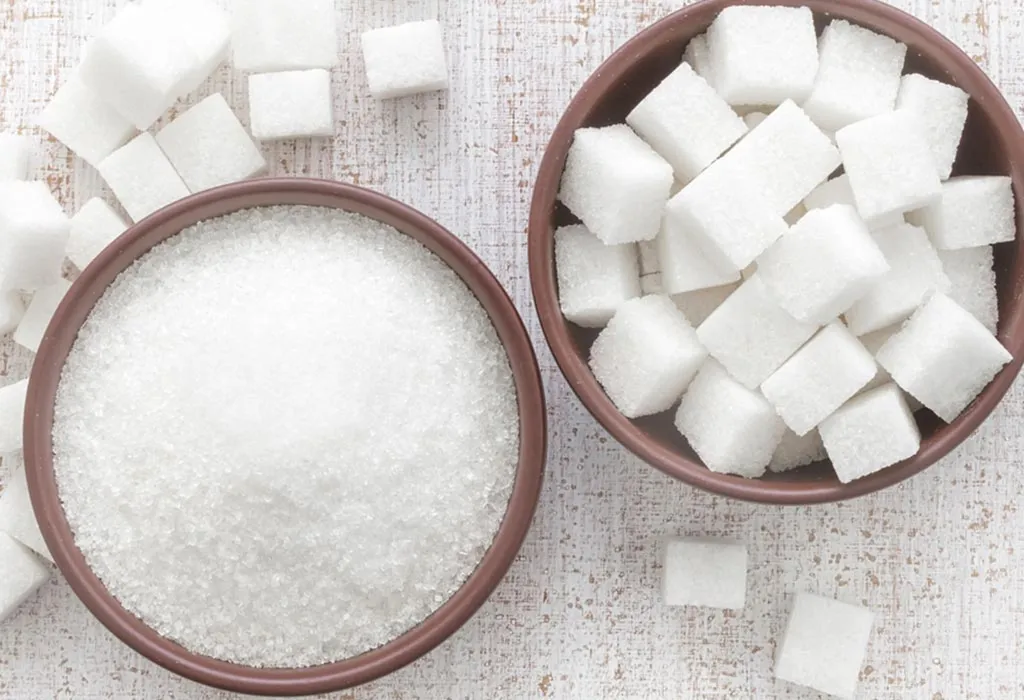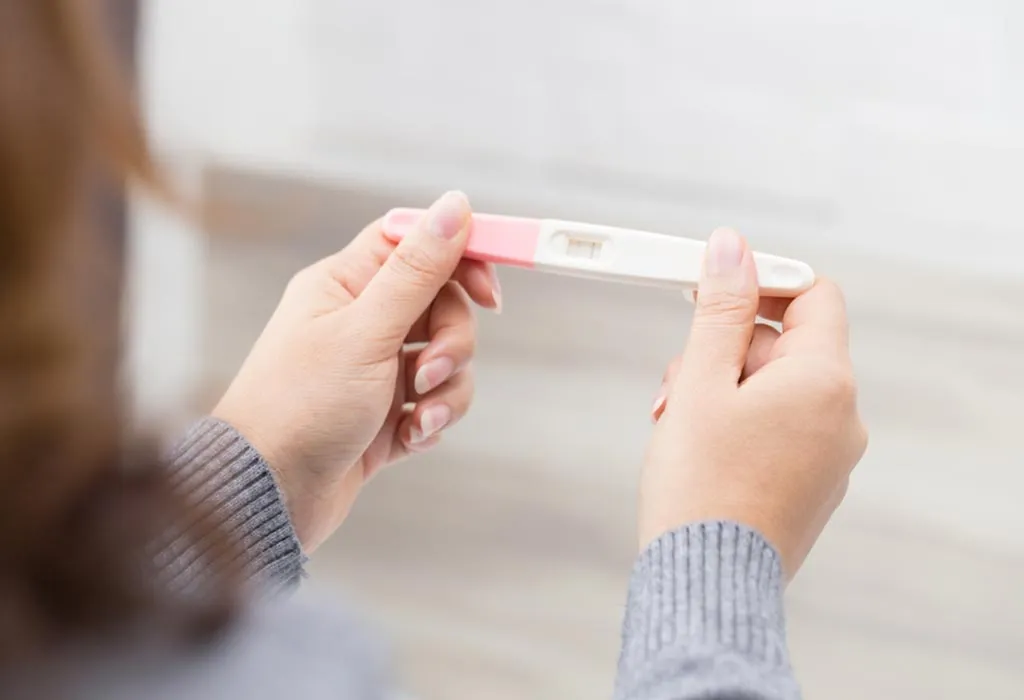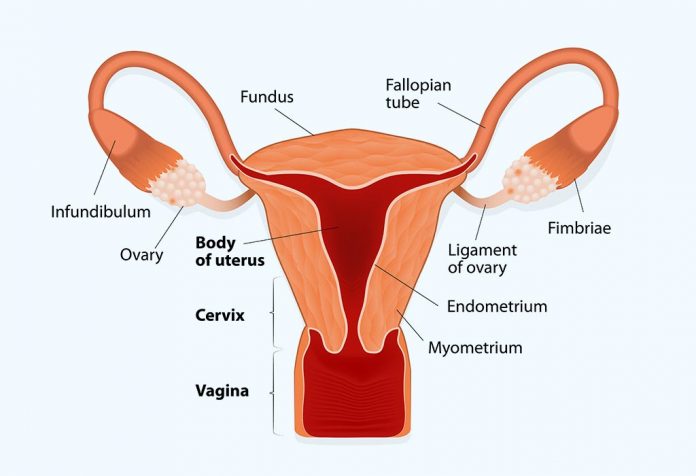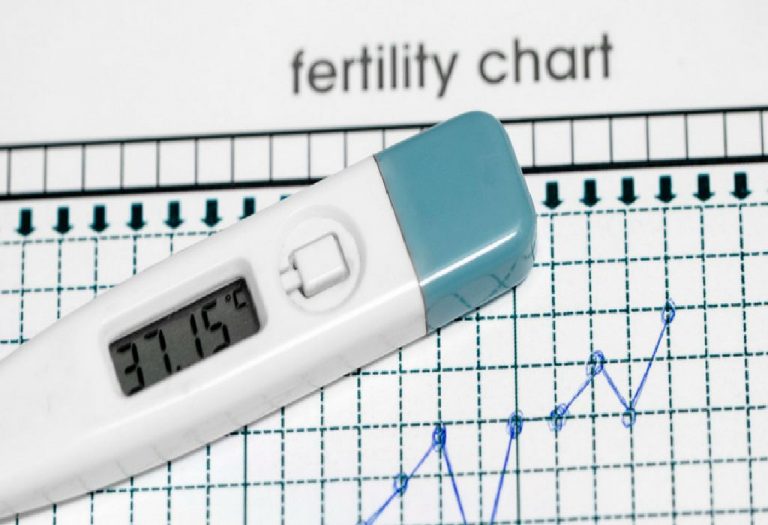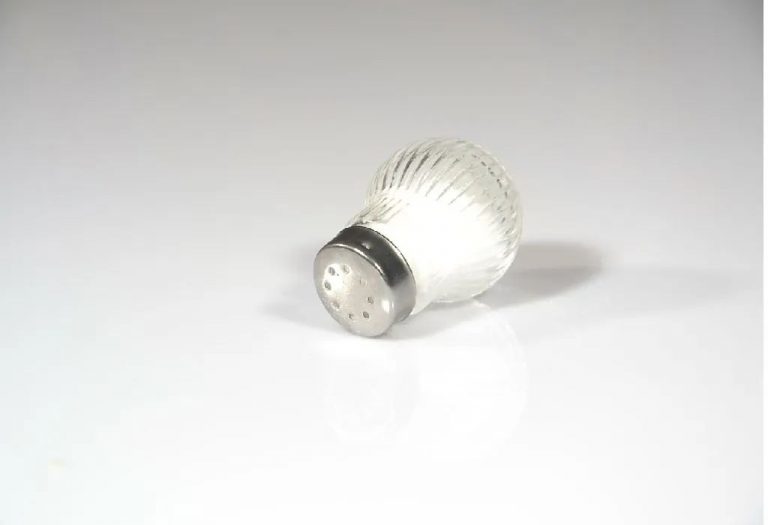Sugar Pregnancy Test: Procedure, Accuracy & Results
Numerous DIY methods claim to offer insights into pregnancy status. Some involve using everyday items like shampoo or sugar to test pregnancy. While these methods require minimal preparation and may offer preliminary indications of pregnancy, they lack the precision of medical tests. The sugar pregnancy test, for example, suggests that a reaction occurs when sugar is added to urine if pregnancy is present. Having said that, if you are keen on knowing if pregnancy can be tested using sugar and how, read through the article once before you speak to your medical practitioner. It’s vital to consult with a healthcare professional for accurate and reliable information on your pregnancy status. So read on to learn all about sugar pregnancy tests.
What Is Sugar Pregnancy Test?
Testing for pregnancy using sugar is done with the help of simple sugar crystals and your urine. As with many other tests, it relies on the presence of the hCG hormone (human chorionic gonadotropin). It is generated by the placenta, and the presence of it is known as a conclusive sign of being pregnant.
Let’s take a quick look at what you will need to conduct this test and how to perform it.
Science or Theory Behind Sugar Pregnancy Test
The sugar pregnancy test, a popular DIY method, is based on the premise that pregnancy hormones, such as hCG, can interact with sugar in a way that causes a reaction. According to advocates of this test, the idea is that when a pregnant woman’s urine is mixed with sugar, it will clump or form a precipitate if pregnancy is present. However, it’s crucial to note that the scientific validity of such home tests is widely debated. Always consult healthcare professionals for accurate pregnancy confirmation.
What Will You Need for a Home Pregnancy Test With Sugar?
As mentioned earlier, you will need only three items to perform the test:
- Simple white sugar that does not have any impurities.
- Two sterilized and dry bowls that can be discarded after use.
- Your first urine of the day.
Benefits of Sugar Pregnancy Test
The sugar pregnancy test has gained attention as a DIY method claiming to detect pregnancy by observing reactions between sugar and urine. While this test may appeal to those seeking alternative methods, it’s essential to understand its benefits and limitations.
1. Cost-Effective
Conducting a sugar pregnancy test is economical as it requires only basic household items. This affordability makes it accessible to individuals who may be constrained by financial considerations.
2. Ease of Conducting
The test is relatively simple to perform, involving the mixing of urine and sugar. This simplicity can be advantageous for those who prefer a convenient at-home option and may not have immediate access to professional testing.
3. Quick Results
The sugar pregnancy test often claims to provide rapid results, with some proponents suggesting that reactions, such as clumping, occur within a short timeframe. This quick turnaround may appeal to individuals seeking immediate insights.
4. Low Environmental Impact
Compared to traditional pregnancy tests that involve plastic components, the sugar pregnancy test relies on common household items. This could be seen as a more environmentally friendly option, reducing the use of disposable materials.
Concerns About Sugar Pregnancy Test
While the sugar pregnancy test has gained popularity as a DIY method for detecting pregnancy, concerns exist regarding its accuracy and reliability. It’s essential to be aware of potential drawbacks before relying on such tests for crucial health information.
- The sugar pregnancy test lacks extensive scientific validation, and its accuracy is questioned by healthcare professionals. The absence of standardized procedures raises doubts about its reliability.
- Results of the sugar pregnancy test may be subjective and open to misinterpretation, as reactions can vary based on individual perceptions. This introduces a risk of false positives or negatives.
- Users have reported inconsistent outcomes, with some experiencing clumping or precipitation unrelated to pregnancy. This variability raises concerns about the test’s consistency and effectiveness.
- Unlike medical tests with clear thresholds for positive or negative results, the sugar pregnancy test lacks standardized criteria for interpretation, making it challenging to establish definitive outcomes.
- While proponents claim quick results, some users report delayed reactions, leading to uncertainty and potential anxiety during the waiting period.
- The safety of using sugar in pregnancy tests is not guaranteed, and concerns about hygiene and contamination may pose risks to users. Professional medical tests adhere to strict safety standards.
- Even if the sugar test indicates pregnancy, it provides no insights into the health of the pregnancy or potential complications. Professional prenatal care is crucial for monitoring and ensuring a healthy pregnancy.
- Relying solely on the sugar pregnancy test may offer a false sense of assurance or concern. It cannot replace comprehensive medical assessments that consider various factors for accurate results.
How to Perform This Test?
The test works best with the first early morning urine since it has the most chances of having a higher proportion of hCG hormone in it (1).
Here’s how you can perform the test:
- Take a tablespoon of sugar in a sterilized bowl.
- Take another bowl and collect your first-morning urine in it.
- Pour one tablespoon of your urine into the bowl with the sugar.
- Let it stay for 4 to 5 minutes.
So, what outcome are we expecting from the test? Read on to know more.
How Does the Sugar Pregnancy Test Work?
The most important property of sugar is its solubility. And that’s the principle based on which the pregnancy test works as well. When a woman is pregnant, her urine contains a good amount of the human chorionic gonadotropin hormone or hCG. When the first urine of a pregnant woman comes in contact with sugar crystals, the hCG hormone reacts with the sugar, preventing it from being assimilated into the fluid of the urine. Therefore, the sugar will fail to dissolve and will form clumps instead. It is highly necessary to use fresh sugar for the test and not old sugar.
How to Interpret the Results of the Test?
The pregnancy sugar test results depend on the reaction the sugar has with the urine, and whether or not the sugar is visible in the bowl after the reaction. The test can either be positive or negative.
1. Positive Sugar Pregnancy Test
On adding urine to the sugar in the bowl, if at the end of the sugar pregnancy test, the sugar stays at the bottom, in the form of clumps, then there is a good chance that you are pregnant. This scenario is termed as a positive sugar pregnancy test. Often the clumps form within five minutes of coming into contact with the urine.
2. Negative Sugar Pregnancy Test
If on coming in contact with your urine, the sugar dissolves within no time, it indicates that your urine does not contain the hCG hormone that prevents the sugar from dissolving. Hence, it is a sign that you are not pregnant, and such a scenario is termed as a negative sugar pregnancy test.
Now you know how to conduct the sugar pregnancy test, but you must have some more questions regarding the test. In the rest of the article, we have tried to address most of them.
What Is the Best Time to Do the Sugar Pregnancy Test?
When it comes to a pregnancy test, be it homemade or with a store-bought pregnancy test kit, everything depends on the possibility of detecting the presence of hCG in your urine. hCG is the first and foremost sign that can confirm pregnancy in a woman, and that’s all that matters in the initial stages.
Throughout the day, the urine can get contaminated or diluted with many other constituents, leading to a quantity of hCG in it, that may not be detected easily. Therefore, the best time to carry out the test is early in the morning, with a fresh sample of the first urine of the day. This has the highest chance of having hCG hormones in it, which can then be detected by the sugar. This would lead to clumping of sugar, and the chances of a clear result would increase.
What Is the Difference Between Sugar and Traditional Pregnancy Tests?
The primary difference between sugar pregnancy tests and traditional pregnancy tests lies in their methodology and reliability. Sugar tests claim to detect pregnancy based on reactions between urine and sugar, often lacking scientific validation and standardized interpretation criteria. In contrast, traditional pregnancy tests use specialized antibodies to detect the presence of hCG, a hormone produced during pregnancy, providing more accurate and reliable results. Always consult healthcare professionals for the most accurate and trustworthy pregnancy confirmation.
How Accurate Is the Sugar Pregnancy Test?
As with any homemade pregnancy tests, there is no benchmark or rulebook that states the generalized accuracy level for sugar pregnancy tests. Most tests are quite dependent on the environmental factors, the constituents used, the hygiene levels, the presence of impurities, the time of tests, and so on.
There might be chances of the bowl not being completely clean and sterile, with impurities in it, that could drastically affect the test. If the urine is not the first fresh urine of the day, the result could vary by a large degree, causing the sugar to dissolve easily, and giving you a false negative pregnancy test result.
The sugar that is being used also needs to be fresh and should have been stored properly in an airtight container. Any sugar that is not stored properly or is quite old can be extra sensitive and hygroscopic in nature. This could cause it to form lumps even before it has a chance to interact with the urine. In such a case, the visibility of lumps might prevent it from dissolving in the urine, causing you to believe that you are pregnant when, in fact, it is a false positive pregnancy test result.
Therefore, it is highly recommended that a homemade pregnancy test is reconfirmed using a professional kit after a few days, irrespective of whether you are expecting the same result or a different one.
Homemade pregnancy tests are a quick and inexpensive way to address the question in your mind related to your pregnancy. Most of the tests are fine since they do not make use of any toxic substances. However, they do not have medical approval since they depend on multiple factors. Therefore, complementing these tests with a clinically-proven pregnancy test kit is your best bet.
Another factor to keep in mind is the understanding of your own body and whether or not you are expecting to get pregnant. Mostly, pregnancy tests are conducted when you end up missing your period. However, there might be a chance that your periods are simply delayed due to stress and other factors in your life. But, if you are consciously trying your best to get pregnant and would like to keep checking for the results every couple of days, you can opt for this homemade pregnancy test, or better instead, go for affordable hCG strips. These are quite inexpensive compared to the usual pregnancy kits and have quite a good accuracy rate, too.
When to Consult a Doctor?
If your menstrual cycle is overdue or you’ve engaged in unprotected intercourse, it’s advisable to consult a healthcare professional to explore potential early signs of pregnancy. Indications may encompass a delayed menstrual cycle, morning sickness, constipation, bloating, abdominal cramps, fatigue, and increased sensitivity or tenderness in the breasts (2).
FAQs
1. Can Pregnancy Test Using Sugar Determine Ectopic, Chemical, Molar Pregnancy or Miscarriage?
No, a test for pregnancy with sugar cannot reliably determine specific types of pregnancies or potential complications such as ectopic, chemical, molar pregnancy, or miscarriage. These tests are not designed to provide detailed information about the nature or health of a pregnancy. For accurate diagnosis and information on pregnancy health, consult with a healthcare professional and rely on medical tests.
2. How Frequently Should I Perform Pregnancy Test With Sugar?
The frequency of testing pregnancy with sugar is not standardized, and there is no established guideline. However, it’s important to note that the scientific validity of sugar pregnancy tests is debated, and their accuracy is uncertain. For reliable results and confirmation of pregnancy, it is recommended to use established medical tests and consult with a healthcare professional.
In any respect, the possibility of sugar clumping cannot be contested with the results of a pregnancy kit. Therefore, it is best to keep a ‘pregnancy test with sugar at home’ only as a preliminary orientation and go for a conclusive one after a few days.
References/Resources:
1. Signs of Pregnancy/The Pregnancy Test; Children’s Hospital of Philadelphia; https://www.chop.edu/conditions-diseases/signs-pregnancythe-pregnancy-test
2. Symptoms of pregnancy: What happens first; Mayo Clinic; https://www.mayoclinic.org/healthy-lifestyle/getting-pregnant/in-depth/symptoms-of-pregnancy/art-20043853
3. Pregnancy; U.S. Food & Drug Administration; https://www.fda.gov/medical-devices/home-use-tests/pregnancy
4. Tomlinson. C, Marshall. J, Ellis. J; Comparison of accuracy and certainty of results of six home pregnancy tests available over-the-counter (Current Medical Research and Opinion); Taylor & Francis Online; https://www.tandfonline.com/doi/full/10.1185/03007990802120572; May 2008
5. Home pregnancy tests: Can you trust the results?; Mayo Clinic; https://www.mayoclinic.org/healthy-lifestyle/getting-pregnant/in-depth/home-pregnancy-tests/art-20047940
6. Bouatra. S, Aziat. F, Mandal. R, Guo. A; The Human Urine Metabolome; Plos One; https://journals.plos.org/plosone/article?id=10.1371/journal.pone.0073076; September 2013
7. Am I Pregnant?; Cleveland Clinic; https://my.clevelandclinic.org/health/articles/9709-pregnancy-am-i-pregnant
Also Read:
DIY Pregnancy Tests
Digital Pregnancy Test
Homemade Pregnancy Test with Shampoo
How to Confirm Pregnancy Without Taking a Test?
Was This Article Helpful?
Parenting is a huge responsibility, for you as a caregiver, but also for us as a parenting content platform. We understand that and take our responsibility of creating credible content seriously. FirstCry Parenting articles are written and published only after extensive research using factually sound references to deliver quality content that is accurate, validated by experts, and completely reliable. To understand how we go about creating content that is credible, read our editorial policy here.





